False positive drug test causes stem from cross-reactivity between substances in immunoassay testing, affecting approximately 5-10% of initial screening results in 2025. Understanding these scientific mechanisms helps job seekers and employers navigate employment screening challenges while maintaining workplace safety standards during background check processes.
Key Takeaways
- False positive drug test causes include prescription medications, over-the-counter drugs, dietary supplements, and certain foods that trigger cross-reactivity in immunoassay screening tests used in background checks.
- Drug test accuracy rates employment screening shows initial immunoassay tests have 85-95% accuracy, while confirmatory GC-MS testing achieves 99.9% precision for final background check results.
- Cross reactivity drug testing occurs when structurally similar compounds interfere with antibody recognition in screening assays, leading to incorrect positive results during employment verification.
- Immunoassay false positive rates vary by substance tested, with amphetamine and opiate screens showing higher cross-reactivity potential than other drug categories in background screening.
- Medical conditions like diabetes, kidney disease, and liver dysfunction can alter metabolism and create unexpected drug test results through endogenous compound production during employment screening.
- Confirmation testing through gas chromatography-mass spectrometry eliminates most false positives, making it essential for employment decisions and legal proceedings in comprehensive background checks.
Understanding Drug Testing Methods and False Positive Mechanisms
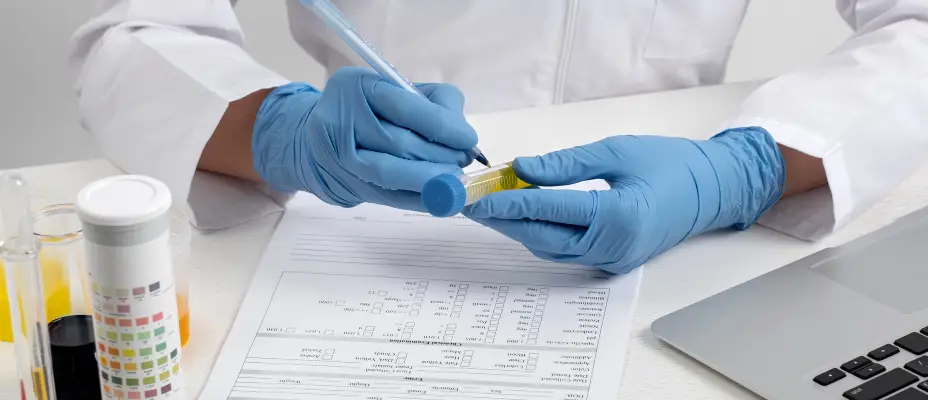
Drug testing technology forms a critical component of modern background check processes. Additionally, it relies primarily on immunoassay screening followed by confirmatory analysis for positive results. Initial screening tests use antibodies that bind to specific drug metabolites in urine samples. However, these antibodies sometimes react with structurally similar compounds that aren't illegal drugs.
The immunoassay process creates opportunities for false positive drug test causes through molecular mimicry. When legal substances share chemical similarities with targeted drugs, they can trigger positive screening results. Furthermore, this cross-reactivity represents the primary mechanism behind most false positive occurrences in workplace drug testing and employment screening programs.
Modern employment verification protocols typically include two-step processes to address accuracy concerns. Initial immunoassay tests provide rapid, cost-effective screening for large applicant pools during background checks. Subsequently, positive results undergo gas chromatography-mass spectrometry (GC-MS) confirmation testing to verify the presence of actual illegal substances before finalizing employment decisions.
As human resource practitioners, we directly observe the significant impact an even small matter, such as an invalid positive reading in a drug test, can have upon one's career and personal life. This too is an eloquent reminder that there is always an individual attached to each test report, along with family, history, and career in the balance. The confirmation test practice and rigorous review process, in consequence, transcend even "best practices" to become an intense moral responsibility. Harmony in promoting safety in workplaces and providing fairness needs to be carefully deliberated, empathetic, and absolutely dedicated to accuracy. It is, at its foundation, more than just safeguarding organizational interests; it involves critical upkeeping of trust and dignity to all involved in the operations.
Most Common Substances That Cause False Positives
Prescription medications represent the leading category of false positive drug test causes in employment settings during 2025. Amphetamine-based ADHD medications frequently trigger positive results for methamphetamine screening in background checks. Similarly, certain antidepressants and antihistamines can create false positives for various drug categories during employment verification processes.
Over-the-counter medications also contribute significantly to false positive occurrences in background screening programs. Cold medications containing pseudoephedrine commonly cause methamphetamine false positives during drug testing. Moreover, pain relievers, sleep aids, and allergy medications may trigger unexpected results depending on their active ingredients and metabolic pathways.
Food products and dietary supplements occasionally contribute to false positive drug test results during employment screening. Poppy seeds remain the most well-known dietary cause of opiate false positives in background checks. Additionally, hemp-based products and CBD supplements may trigger marijuana positives despite containing legal THC levels under current 2025 regulations.
Common False Positive Triggers in Background Check Drug Testing:
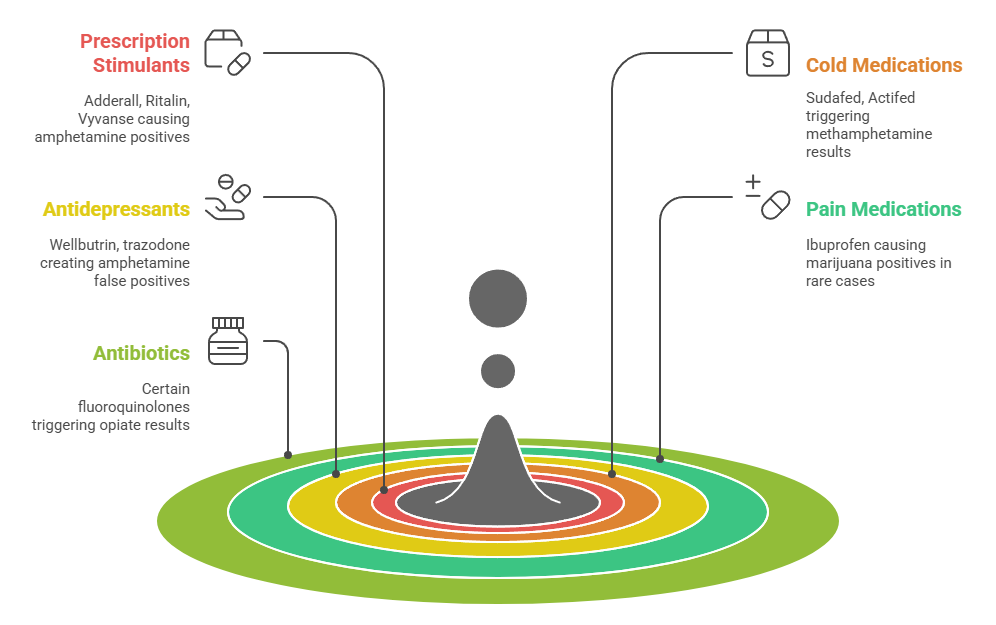
- Prescription stimulants: Adderall, Ritalin, Vyvanse causing amphetamine positives
- Cold medications: Sudafed, Actifed triggering methamphetamine results
- Antidepressants: Wellbutrin, trazodone creating amphetamine false positives
- Pain medications: Ibuprofen causing marijuana positives in rare cases
- Antibiotics: Certain fluoroquinolones triggering opiate results
These substances create challenges for both job seekers and employers during the background check process. Consequently, proper disclosure and confirmation testing become essential for accurate employment screening outcomes.
Scientific Explanation of Cross-Reactivity in Drug Testing
Cross-reactivity mechanisms in drug testing represent a fundamental challenge in employment background check accuracy. The process occurs when immunoassay antibodies bind to structurally similar molecules instead of target drug metabolites. Therefore, understanding these interactions helps employers and job seekers navigate potential false positive results during screening processes.
Immunoassay false positive occurrences result from antibody limitations in distinguishing between chemically similar compounds. The testing process uses specific antibodies designed to bind with target drug metabolites during background checks. When other compounds share similar molecular structures, they can trigger false binding reactions that compromise screening accuracy.
The sensitivity settings of immunoassay tests create another source of false positive potential in employment verification. Lower cutoff thresholds increase detection capability but also raise cross-reactivity risks during drug testing. Conversely, higher thresholds reduce false positives but may miss actual drug use in background screening programs.
Cross-Reactivity Factors in Background Check Drug Testing:
| Factor | Impact Level | Common Examples |
| Molecular Structure Similarity | High | Pseudoephedrine vs Methamphetamine |
| Metabolic Pathways | Medium | Prescription stimulants |
These scientific limitations necessitate confirmation testing for all positive results in comprehensive background check programs. Therefore, employers should implement proper verification protocols to ensure accurate employment screening outcomes.
Medical Conditions and Physiological Factors
Disease-Related Metabolic Changes
Certain medical conditions significantly influence drug test results through altered metabolism during background check processes. Diabetes may affect how the body processes substances and eliminates metabolites in employment screening. Additionally, kidney disease can alter clearance rates and concentrate certain compounds in urine samples during drug testing.
Medical Condition Impacts on Background Check Drug Testing:
- Diabetes: Altered metabolism affecting ketone production and elimination
- Kidney Disease: Changed clearance rates concentrating metabolites
- Liver Dysfunction: Impaired processing creating unusual metabolic products
These conditions require careful consideration during employment verification processes. Consequently, medical review officers play crucial roles in interpreting drug test results within the context of comprehensive background checks.
Hormonal and Age-Related Factors
Pregnancy and hormonal changes can affect drug test accuracy rates employment screening programs observe in 2025. Hormonal fluctuations may alter how quickly substances clear from the system during background check processes. Moreover, pregnancy-related metabolic changes can influence how the body processes both legal and illegal compounds during drug testing.
Age-related metabolic changes also impact drug test outcomes in employment screening programs. Older adults may process medications differently, potentially affecting detection windows and metabolite concentrations. Therefore, these physiological variations require consideration during background check interpretation and result evaluation processes.
Environmental Contamination and External Factors
Environmental contamination represents an often-overlooked source of false positive drug test causes in workplace background check programs. Secondhand marijuana smoke can theoretically cause positive THC results in extreme exposure situations during employment screening. However, normal environmental exposure rarely produces positive results at standard cutoff levels used in 2025 drug testing protocols.
Industrial workplaces may expose employees to chemicals that cross-react with drug tests during background verification processes. Paint fumes, solvents, and cleaning chemicals occasionally trigger unexpected positive results in employment screening. Furthermore, these environmental factors become more significant in manufacturing and construction industries where background checks include comprehensive drug testing.
Environmental Contamination Sources:
- Workplace exposure: Industrial chemicals affecting test results
- Laboratory contamination: Sample processing errors during background checks
- Cross-contamination: Mixed samples compromising drug testing accuracy
Proper sample collection and handling protocols help minimize environmental contamination risks in employment background check programs. Therefore, maintaining chain of custody becomes essential for reliable drug testing outcomes during screening processes.
Drug Test Accuracy Statistics and Research Data
Recent studies indicate that false positive drug test statistics 2025 research shows continued improvement in testing accuracy compared to previous years. Initial immunoassay screening tests now achieve 85-95% accuracy rates across different drug categories in background check programs. However, confirmation testing remains essential for definitive results in employment decisions and comprehensive screening processes.
Research data reveals that amphetamine and opiate categories show the highest false positive rates in immunoassay screening during background checks. Cocaine and marijuana tests demonstrate better specificity with fewer cross-reactivity issues in employment verification. Additionally, these accuracy differences influence how employers and testing laboratories approach result interpretation in drug testing programs.
What causes false positive drug test results has been extensively studied in 2025 employment screening research. Environmental factors, medication interactions, and physiological variations contribute to false positive occurrences in background check drug testing. Moreover, improved testing protocols and confirmation procedures have significantly reduced overall false positive rates in employment verification programs.
2025 Accuracy Statistics for Background Check Drug Testing:
| Test Type | Initial Accuracy | Confirmation Accuracy | False Positive Rate |
| Marijuana | 93-97% | 99.9% | 2-3% |
| Cocaine | 95-98% | 99.9% | 1-2% |
| Amphetamines | 87-92% | 99.9% | 4-7% |
The percentage of drug tests that are false positive has decreased significantly with improved testing protocols in 2025 background check programs. Modern employment screening achieves overall false positive rates below 0.5% when confirmation testing is properly implemented. This improvement reflects advances in testing technology and standardized laboratory procedures used in comprehensive background verification processes.
Prevention Strategies for Job Seekers
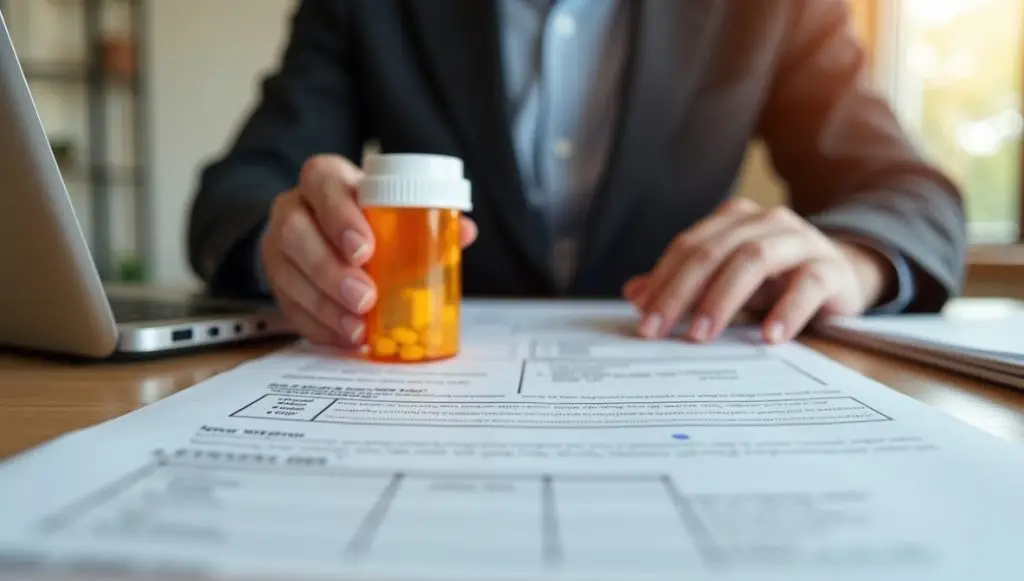
Job seekers can take proactive steps to minimize false positive risks during employment screening processes and background checks. Disclosure of prescription medications and supplements before testing helps explain potential positive results in drug testing. Moreover, maintaining detailed records of medications and dosages supports result challenges if necessary during employment verification.
Consulting with healthcare providers about drug testing implications helps identify potentially problematic medications before background check processes. Some doctors can suggest alternative treatments that don't interfere with employment screening. Additionally, timing medical treatments around known testing schedules may reduce false positive risks during drug testing and background verification.
Understanding why drug tests give false positives helps job seekers make informed decisions about medications and supplements before employment screening. Reading labels carefully and researching active ingredients can identify potential cross-reactivity risks in background check drug testing. Furthermore, avoiding unnecessary over-the-counter medications before testing reduces false positive possibilities during verification processes.
Prevention Best Practices for Background Check Drug Testing:
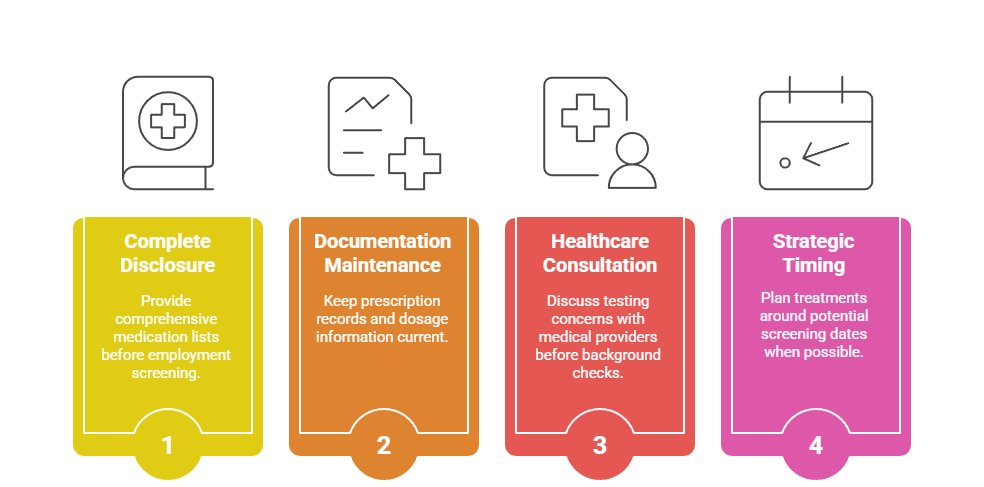
- Complete Medication Disclosure: Provide comprehensive lists before employment screening
- Documentation Maintenance: Keep prescription records and dosage information current
- Healthcare Consultation: Discuss testing concerns with medical providers before background checks
- Strategic Timing: Plan treatments around potential screening dates when possible
These prevention strategies help ensure accurate drug testing outcomes during employment background check processes. Therefore, proactive preparation can prevent false positive complications that might delay or compromise job opportunities in 2025 screening programs.
Legal Rights and Employer Responsibilities
FCRA Compliance in Background Check Drug Testing
The Fair Credit Reporting Act governs how employers must handle drug test results that could negatively impact hiring decisions during background checks. Employers must provide proper disclosure and obtain written consent before conducting drug tests as part of employment screening. Additionally, adverse action procedures apply when drug test results influence employment decisions in comprehensive background verification programs.
FCRA requirements mandate that employers provide copies of positive drug test results to applicants before making final hiring decisions. The law also requires disclosure of applicant rights and dispute procedures during background check processes. Furthermore, these protections help ensure fair treatment when false positive results occur in employment screening programs.
Medical Review Officer Role
Medical review officers serve as crucial intermediaries in background check drug testing processes during 2025 employment verification. These qualified physicians evaluate positive drug test results within medical contexts before reporting to employers. Additionally, they can identify legitimate medical explanations for positive results that might otherwise appear as drug use violations during screening.
The medical review process allows job seekers to explain prescription medication use and medical conditions that might cause false positive results. Medical review officers can verify prescriptions and assess whether positive results stem from legitimate medical treatment rather than illegal drug use. Therefore, this evaluation process protects both employee rights and employer interests in comprehensive background check programs.
Industry-Specific Considerations and Variations
Healthcare and transportation industries face stricter drug testing requirements that affect how false positive results are handled in background checks. Department of Transportation regulations mandate specific testing protocols and confirmation procedures for employment screening. Similarly, healthcare facilities must balance patient safety with fair employee treatment regarding drug test results during background verification processes.
Industry-Specific Drug Testing Requirements in Background Checks:
- DOT Regulations: Enhanced protocols for transportation workers during employment screening
- Healthcare Standards: Strict safety requirements for patient care roles in background verification
- Security Clearances: Lower detection thresholds for sensitive positions requiring comprehensive screening
- Financial Services: Heightened screening protocols for fiduciary responsibilities during background checks
Manufacturing and construction environments may expose workers to industrial chemicals that interfere with drug testing during background checks. Employers in these industries should consider environmental factors when interpreting test results in employment screening. Therefore, specialized testing protocols may be necessary for accurate results in industrial background verification programs.
Financial services and security industries often implement enhanced screening procedures that include lower detection thresholds in background checks. These stricter standards may increase false positive rates but provide additional safety margins during employment verification. Consequently, employees in these sectors should exercise extra caution regarding medications and supplements before drug testing.
Challenging False Positive Results in Employment Screening
Job seekers have specific rights to challenge positive drug test results through confirmation testing and medical review officer consultations during background checks. The appeals process typically involves requesting GC-MS analysis if not automatically performed in employment screening. Additionally, applicants can provide medical documentation supporting alternative explanations for positive results during background verification.
Independent retesting at different laboratories may be available depending on employer policies and local regulations governing background checks. Laboratories must maintain samples for retesting within specified timeframes during employment screening processes. Furthermore, proper documentation and timely challenges help ensure fair treatment during drug testing appeals in background verification programs.
False Positive Challenge Process in Background Check Drug Testing:
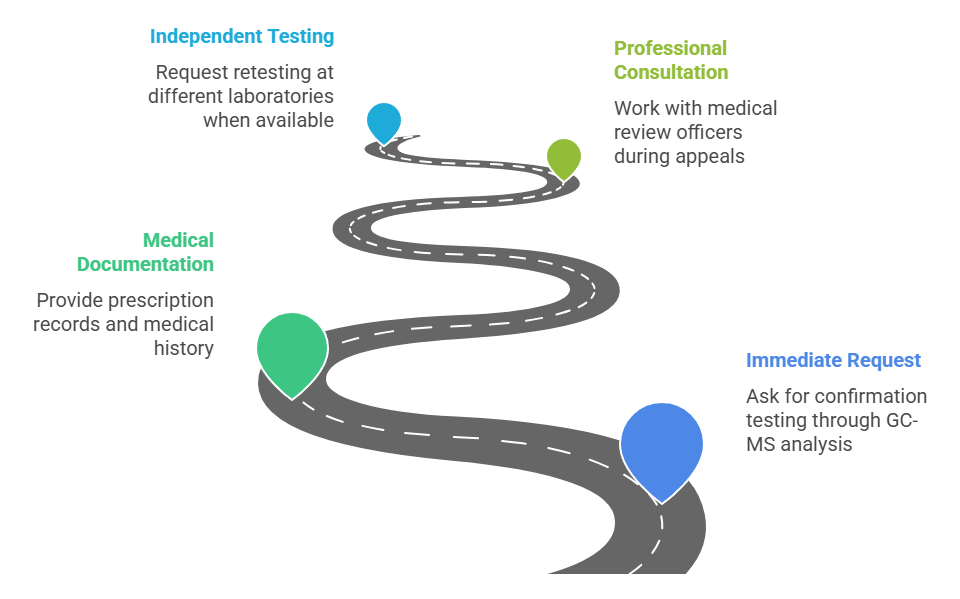
- Immediate Request: Ask for confirmation testing through GC-MS analysis
- Medical Documentation: Provide prescription records and medical history
- Professional Consultation: Work with medical review officers during appeals
- Independent Testing: Request retesting at different laboratories when available
Understanding how common are false positive drug tests helps job seekers prepare for potential challenges during employment screening. Statistics show that proper challenge procedures resolve most false positive results in background check programs. Therefore, knowing appeal rights and procedures protects job seekers during comprehensive employment verification processes.
Conclusion
Understanding false positive drug tests empowers both job seekers and employers to navigate employment screening and background check processes more effectively while maintaining workplace safety standards in 2025. The science behind cross reactivity drug testing reveals that immunoassay false positive results occur primarily through molecular similarities between legal and illegal substances, affecting 5-10% of initial screening tests in comprehensive background verification programs. However, confirmation testing through gas chromatography-mass spectrometry virtually eliminates these false positives, achieving 99.9% accuracy in final results for employment screening decisions. By recognizing common triggers like prescription medications, over-the-counter drugs, and medical conditions, stakeholders can implement prevention strategies and proper disclosure procedures that protect both individual rights and organizational interests throughout the background check and employment verification process.
Frequently Asked Questions
How common are false positive drug tests in employment screening?
False positive drug test statistics 2025 indicate that initial immunoassay screening produces false positive results in approximately 4-8% of tests during background checks, depending on the substance being tested. However, confirmation testing through GC-MS reduces the overall false positive rate to less than 0.5% in properly conducted employment screening programs. The actual rate varies by drug category, with amphetamine and opiate tests showing higher false positive potential than marijuana or cocaine screening in comprehensive background verification processes.
Can vitamins cause false positive drug test results?
Certain vitamins and dietary supplements can potentially cause false positive drug test results through cross-reactivity mechanisms during background check processes. B-complex vitamins, particularly those containing riboflavin, may interfere with some immunoassay tests in employment screening. Additionally, supplements containing hemp-derived ingredients or poppy seed extracts can trigger positive results for marijuana or opiates respectively during drug testing, though confirmation testing typically resolves these issues in comprehensive background verification programs.
Do antibiotics cause false positive drug tests for employment?
Some antibiotics can cause false positive drug test results during background check processes, particularly fluoroquinolone antibiotics like ciprofloxacin and levofloxacin, which may trigger positive results for opiates in immunoassay screening. Additionally, certain beta-lactam antibiotics have been associated with false positive results for cocaine metabolites during employment verification. However, these false positives are typically resolved through confirmation testing and medical review officer evaluation in comprehensive background check programs.
Why are drug tests not 100% accurate in employment settings?
Drug test accuracy rates employment screening achieves are limited by the technology and methodology used in initial screening tests during background check processes. Immunoassay tests rely on antibody binding that can cross-react with structurally similar legal substances, creating false positive results during employment verification. Environmental factors, medical conditions, and sample handling issues also contribute to accuracy limitations, which is why confirmation testing through more precise methods like GC-MS is essential for definitive results in comprehensive background screening programs.
Can dehydration cause false positive drug test results?
Dehydration can potentially affect drug test results by concentrating substances in urine samples during background check processes, but it rarely causes false positive results directly. Severe dehydration may concentrate naturally occurring compounds or medications to levels that trigger positive immunoassay results in employment screening. Additionally, dehydration can affect how quickly substances are metabolized and eliminated from the body, potentially extending detection windows for both legal and illegal substances during comprehensive background verification processes.
What should I do if I receive a false positive drug test result?
If you receive a false positive drug test result during employment screening or background check processes, immediately request confirmation testing through GC-MS analysis if not automatically provided. Contact the medical review officer to discuss any prescription medications, medical conditions, or legal substances that might explain the positive result during verification. Document all medications and supplements you're taking, and consider consulting with a healthcare provider or legal professional if the false positive significantly impacts your employment prospects in background check programs.
Additional Resources
- Substance Abuse and Mental Health Services Administration (SAMHSA) Drug Testing Guidelines
https://www.samhsa.gov/workplace/legal/federal-laws-regulations - Department of Transportation Drug Testing Procedures
https://www.transportation.gov/odapc/drug-testing-procedures - College of American Pathologists Drug Testing Standards
https://www.cap.org/laboratory-improvement/accreditation/toxicology - National Institute on Drug Abuse Workplace Drug Testing Research
https://nida.nih.gov/drug-topics/drug-testing - American Association of Medical Review Officers
https://www.aamro.com/

GCheck Editorial Team
Meet the GCheck Editorial Team, your trusted source for insightful and up-to-date information in the world of employment background checks. Committed to delivering the latest trends, best practices, and industry insights, our team is dedicated to keeping you informed.
With a passion for ensuring accuracy, compliance, and efficiency in background screening, we are your go-to experts in the field. Stay tuned for our comprehensive articles, guides, and analysis, designed to empower businesses and individuals with the knowledge they need to make informed decisions.
At GCheck, we're here to guide you through the complexities of background checks, every step of the way.






